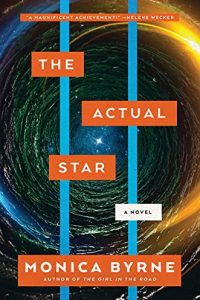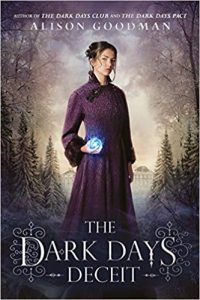Rich Horton Reviews Short Fiction: F&SF, Cossmass Infinities and Fusion Fragment
 F&SF 11-12/21
F&SF 11-12/21
Cossmass Infinities 9/21
Fusion Fragment 9/21
F&SF’s final 2021 issue is at hand. The marquee name is Nalo Hopkinson, the newest SFWA Grand Master, with her first appearance in the magazine. (One result of new editor Sheree Renee Thomas taking the helm has been lots of first appearances.) “Broad Dutty Water: A Sunken Story” is an example of “cli-fi,” but a science fiction writer’s approach to cli-fi – stuffed with extrapolation, social as well as mechanical. Indeed, though this story is set in a perilous future in which rising seas have drowned a great deal of land and humanity’s future is still uncertain, there are aspects here that seem almost utopian, from technologically mediated green growing practices to printed ultralight planes that fly themselves to brain implants that can give you night vision (and much more). The story built around it is a sea adventure: Jacquee has taken her “taz”‘s ultralight to get her latest implant surgery, and now she’s flying home, with her talking pig Lickchop. She’s already in trouble, she knows, and things get a lot worse when a storm blows up and her piloting skills aren’t enough to save the ultralight. Exciting stuff, and her survival is severely in question… though the deserted island she fetches up on does lead to an unusual discovery…. This is a strong story set in a milieu that has room for a lot more stories, and centered on a likable but far from sensible character.
R.Napper offers another exciting near-future SF story in “A Vast Silence”, his first sale to F&SF. Jackson Nguyen is a small-time criminal in Melbourne who has the bad luck to try to rob a woman who apparently has something really important, something people want badly enough to kill for. His partner already dead, Jackson has finagled a ride from a young woman, a university student, but his luck runs out when the police flag them down in the desolate Nullarbor Plain. Jackson is dealing with an unexpected voice in his head, one whose advice seems sound (or at least to offer the best among terrible options). The woman who had the bad luck to give him a ride is, of course, furious. And the police turn out to be corrupt: they are after whatever Jackson has (that he knows nothing about.) The resolution turns, of course, on the nature of the tech Jackson is unknowingly harboring, and this is quite interesting, with implications for this future that may be hopeful – or very scary indeed.
There is plenty more to like here. Eleanor Arnason’s “Laki” is another of her Icelandic stories about trolls. It’s framed as a story found in a notebook the narrator’s five times great-grandmother kept about her experiences during the catastrophic eruption of the title volcano. Arnason’s matter-of-fact prose relates a wholly believable story of a farm family, complete with a sheep that can foresee the weather, and their perilous flight to shelter in a cave after the volcano erupts. Other beings are in the cave as well… trolls. Things are resolved practically, without sentimentality (and a theme runs through the whole story where men bluster and threaten, and their wives decide to do what makes sense). Megan Lindholm’s “A Dime” is a bittersweet short piece about a woman who makes a habit of calling her parents at Christmas from a particular payphone, which over time becomes a challenge. This is about what may be her last call from this all but abandoned phone. I won’t say more, but the story hits its notes just right. Hayley Stone, a writer new to me, tells an oddly heartwarming story in “The Black Dog Goes Gray”, as a werewolf takes in a young girl who has also been turned, and tries to show her a way to live with her new self.
At Cossmass Infinities several stories impressed me. “Sungrass Girl” by Uchechukwu Nwaka, is told from the point of view of Uke, a mmụọ, a magical creature pulled from arcana by Kamsi, a young girl from a poor family. Uke takes the form of a tortoise, and when Kamsi goes to school to learn to use her arcana she is bullied, partly for her social standing, partly for her untraditional mmụọ (others have the likes of hawks), and partly for her brother’s tragic fate, which we don’t learn for some time. This whole setup seems an intriguingly flavored but traditional story – but Nwaka has different ideas, and the story moves in a very dark direction. “Splits” by P.A. Cornell has a striking, original idea: certain people have “split” into multiple incarnations of themselves, at different ages. Annie, who is about 30, has three splits – a baby, a nine-year-old, and a rebellious teenager. The story sketches their life as an odd sort of family, with their different (but essentially similar) characters, then asks what if there could be a cure? And PH Lee, in “The True Value of an Artist is His Patriotism”, examines a musicology professor and one unwilling student, in the moons of Jupiter, as the student asks why she must write an essay about a composer her polity (on Europa) considers a traitor. The story starkly examines art, and its use and misuse by political actors (while hinting at a fraught situation on Europa.)
The opening story in Fusion Fragment this month, “Giving up the Quale” by Avery Becard, is a very strange piece of SF set on an alien planet and told by Sai, the leading female scientist on what seems to be an archaeological dig. Her boss, Morran, is a cranky male, and he harbors and endosymbiote, a quale, in his belly… but the quale is dying. The story really centers on Sai’s relationship with Morran, which in many ways echoes the sorts of relationships we’ve seen before between male superiors and their female seconds-in-command. This context is different because this species produces very few males and many females. Sai has no quale – for many in her generation, it seems, the quale is killed before birth, which lends its host longer life and other benefits. The story – revolving around the medical emergency caused by Morran’s quale’s dying – is mostly a character piece, despite the quite intriguing biological nature of this species. I was fascinated, but I also felt that I was missing something – I wanted to learn a bit more about the biology.
Priya Chand’s “The Yoni Sutra” is a powerful story of a future India in which women are protected by an implant which will shock anyone outside their family who touches them. As the story opens, Shalini is getting married and for the first time her chosen husband will be able to touch her. She is also facing the possibility of promotion at a job she likes, which will mean delaying motherhood. She befriends a new woman at her company, who does not have the implant – and who is thus both freer and at greater risk, a fact emphasized when she is nearly raped. The climax nicely juxtaposes the choices faced by both Shalini (who is unexpectedly pregnant) and her friend (suffering after the near rape). The central question is well interrogated: is the supposed safety benefit of the implant (a clear extrapolation of the habit of isolating women in many cultures) worth the price?
Recommended Stories
“Laki”, Eleanor Arnason (F&SF 11-12/21)
“The True Value of an Artist is his Patriotism”, PH Lee (Cossmass Infinities 9/21)
“Broad Dutty Water: A Sunken Story”, Nalo Hopkinson (F&SF 11-12/21)
“A Dime”, Megan Lindholm (F&SF 11-12/21)
“A Vast Silence”, T.R. Napper (F&SF 11-12/21)
“Sungrass Girl”, Uchechukwu Nwaka (Cossmass Infinities 9/21)
“The Yoni Sutra”, Priya Chand (Fusion Fragment 9/21)
Rich Horton works for a major aerospace company in St. Louis MO. He has published over a dozen anthologies, including the yearly series The Year’s Best Science Fiction and Fantasy from Prime Books, and he is the Reprint Editor for Lightspeed Magazine. He contributes articles and reviews on SF and SF history to numerous publications.
This review and more like it in the December 2021 issue of Locus.
 While you are here, please take a moment to support Locus with a one-time or recurring donation. We rely on reader donations to keep the magazine and site going, and would like to keep the site paywall free, but WE NEED YOUR FINANCIAL SUPPORT to continue quality coverage of the science fiction and fantasy field.
While you are here, please take a moment to support Locus with a one-time or recurring donation. We rely on reader donations to keep the magazine and site going, and would like to keep the site paywall free, but WE NEED YOUR FINANCIAL SUPPORT to continue quality coverage of the science fiction and fantasy field.
©Locus Magazine. Copyrighted material may not be republished without permission of LSFF.







